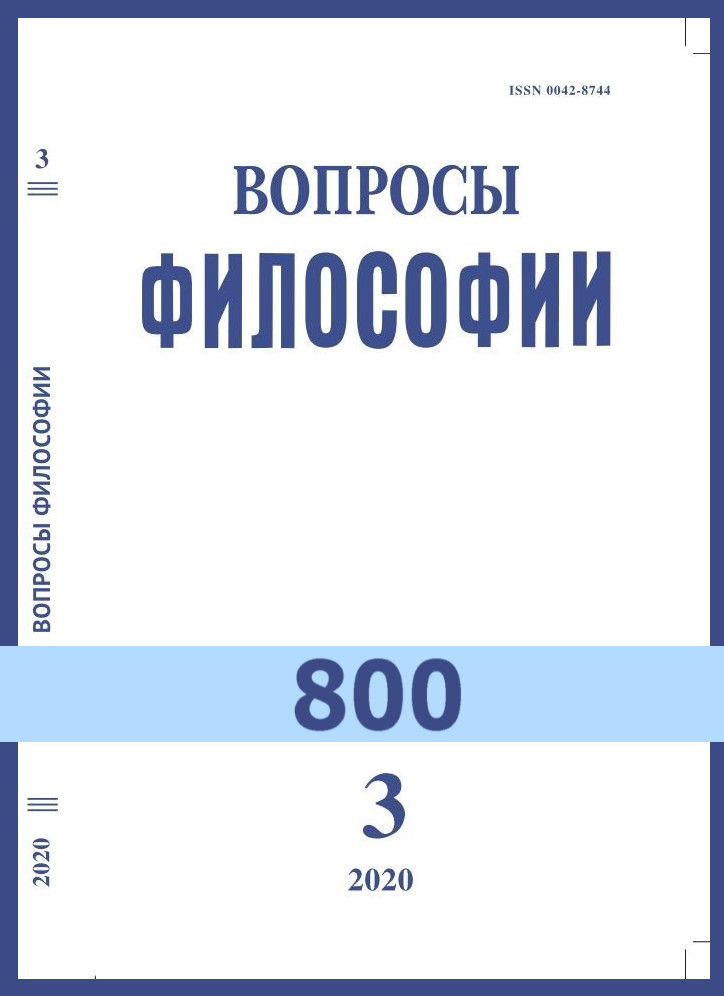Ontology of Time: Berdjaev and Heidegger
DOI:
https://doi.org/10.21146/0042-8744-2020-3-137-148Keywords:
N. Berdyaev, M. Heidegger, ontology, time, temporality, eternity, historicity, history, man, existence, being, destiny, death, Dasein.Abstract
In my paper, I give a philosophical analysis of time by comparing Nikolai Berdyaev’s and Martin Heidegger’s ontological conceptions of time. The main purpose is to identify some characteristic features of the approaches of these philosophers to understanding time and, through the prism of these main features, to point out some general trends in understanding time in the twenties of the last century. I demonstrate that, for these authors, time becomes the ultimate ontological basis for the revelation of the very existence of human being as an only species having history. The analysis of the existential significance of time shows that, in contrast to Heidegger’s famous model of “being-to-death”, Berdyaev’s approach can be interpreted as “being-to-eternity”. The focus is on the study of the relationship between time and eternity, between the components of time, namely past, future and present, as well as the interrelation between subjective, understood as phenomenal or existential, and objective, social time. Further on, I analyze the transition from the temporality of human being to her historicity and after that I investigate the understanding the structure and character of historical process in the theories of theses philosophers.

